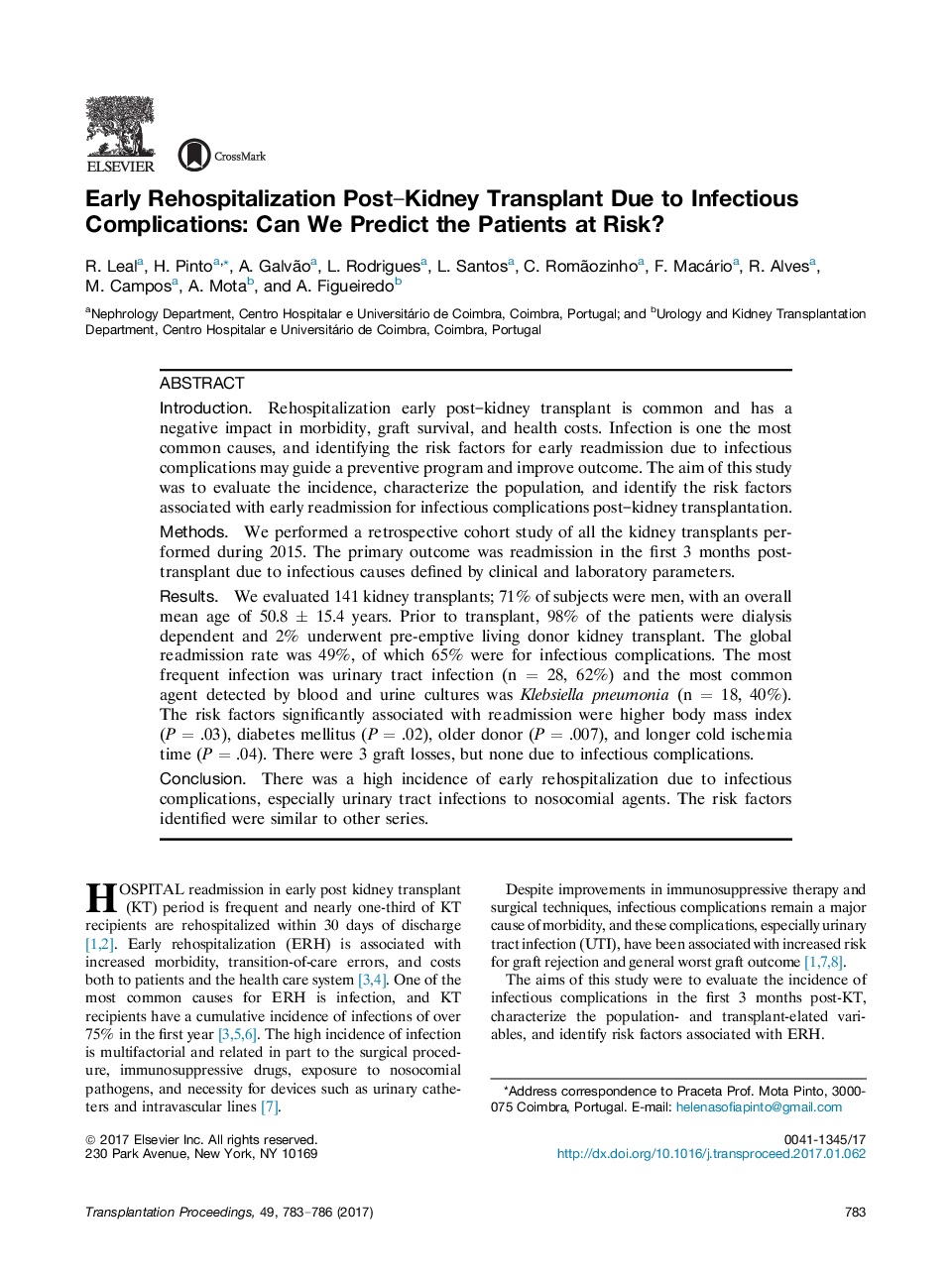| کد مقاله | کد نشریه | سال انتشار | مقاله انگلیسی | نسخه تمام متن |
|---|---|---|---|---|
| 5728933 | 1411673 | 2017 | 4 صفحه PDF | دانلود رایگان |
IntroductionRehospitalization early post-kidney transplant is common and has a negative impact in morbidity, graft survival, and health costs. Infection is one the most common causes, and identifying the risk factors for early readmission due to infectious complications may guide a preventive program and improve outcome. The aim of this study was to evaluate the incidence, characterize the population, and identify the risk factors associated with early readmission for infectious complications post-kidney transplantation.MethodsWe performed a retrospective cohort study of all the kidney transplants performed during 2015. The primary outcome was readmission in the first 3 months post-transplant due to infectious causes defined by clinical and laboratory parameters.ResultsWe evaluated 141 kidney transplants; 71% of subjects were men, with an overall mean age of 50.8 ± 15.4 years. Prior to transplant, 98% of the patients were dialysis dependent and 2% underwent pre-emptive living donor kidney transplant. The global readmission rate was 49%, of which 65% were for infectious complications. The most frequent infection was urinary tract infection (n = 28, 62%) and the most common agent detected by blood and urine cultures was Klebsiella pneumonia (n = 18, 40%). The risk factors significantly associated with readmission were higher body mass index (P = .03), diabetes mellitus (P = .02), older donor (P = .007), and longer cold ischemia time (P = .04). There were 3 graft losses, but none due to infectious complications.ConclusionThere was a high incidence of early rehospitalization due to infectious complications, especially urinary tract infections to nosocomial agents. The risk factors identified were similar to other series.
Journal: Transplantation Proceedings - Volume 49, Issue 4, May 2017, Pages 783-786
